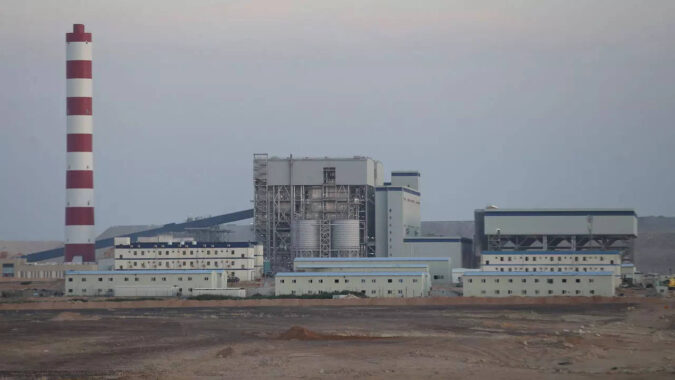TOI has already reported extensively on Sri Lanka’s billion-dollar “white elephant” projects, courtesy China. Now, Jordan has become the latest victim of Beijing’s debt-trap diplomacy after a troubled new power plant left the country with billions of dollars in debt.
The story is always the same. China pumps billion of dollars into projects promising huge return potential. Once completed, the projects turn out to be economically unviable.
In Jordan, the Attarat power plant was envisioned as a landmark project promising to provide the desert kingdom with a major source of energy while solidifying its relations with China.
But weeks after its official opening, the site, a sea of black, crumbly rock in the barren desert south of Jordan’s capital, is a source of controversy, reported AP.
According to the report, the project has put Jordan on the hook for billions of dollars in debt to China. Unfortunately, the plant is no longer needed for its energy because of other agreements made since the project’s conception.
The project has now become a thorny issue between Jordan and China, causing grief to the Arab nation is it tries to contest the deal in an international legal battle.
“As Chinese influence grows in the Middle East and America withdraws, the $2.1 billion shale oil station has come to characterize China’s wider model that has burdened many Asian and African states with crippling debt and served as a cautionary tale for the region,” the report said.
“Attarat is a representation of what the Belt and Road Initiative was and has become,” Jesse Marks, a nonresident fellow at the Washington-based Stimson Center, told AP as he referred to China’s scheme to build global infrastructure and boost Beijing’s political sway.
Conceived almost 15 years ago as an ambitious project, the Attarat shale oil plant is now causing anger in Jordan because of its enormous price tag.
If the original agreement holds, Jordan would have to pay China a staggering $8.4 billion over 30 years to buy the electricity generated by the plant.
China sees an opportunity
Attarat Power Co. board member Mohammed Maaitah said he had originally pitched the project the world over — from US and Europe to Japan and South Korea. But no one agreed.
To Jordan’s surprise, Chinese banks offered Jordan over $1.6 billion in loans to finance the plant in 2017.
A Chinese state-owned firm, Guangdong Energy Group, bought a 45% stake in the Attarat Power Co., turning the white elephant into the largest private enterprise to come out of President Xi Jinping’s Belt and Road Initiative outside China, according to the company.
The investment was part of China’s wider push into an Arab world hungry for foreign investment, experts say. The money for large infrastructure projects came with few political strings attached.
“China doesn’t bring with it the baggage of the United States in that we actually have some concern about democratic processes, transparency, corruption,” said David Schenker, a former US assistant secretary of state for Middle East policy. “For authoritarian states, there’s some appeal in China.”
Under their 30-year power purchase deal, Jordan’s state-run electricity company will have to buy electricity from the now effectively Chinese-led Attarat at an exorbitant rate that means the Jordanian government would lose $280 million annually, the treasury estimated.
To cover the payments, Jordan would have to raise electricity prices for consumers by 17%, energy experts said — a severe blow to an economy already saddled with debt and inflation.
The extent of losses to China appalled the Jordanian government. Jordan’s ministry of energy launched international arbitration against Attarat Power Co. in 2020 “on the grounds of gross unfairness.”
Musa Hantash, a geologist on the parliamentary energy committee, described the deal as the natural outcome of corruption and a lack of technical expertise.
Flexing military might
On one hand, China is using its financial prowess to take advantage of poorer nations, on the other, it’s using its military strength to harass smaller neighbours like Philippines.
The island nation, which has a long-standing territorial dispute with Beijing, is now claiming harassment by China near a disputed reef.
On Wednesday, the Philippines accused China’s coast guard of harassment, obstruction and “dangerous manoeuvres” against its vessels, after another incident near a strategic feature of the South China Sea that has become a flashpoint between them.
Philippine coast guard boats were assisting a naval operation on June 30 when they were “constantly followed, harassed, and obstructed by the significantly larger Chinese coast guard vessels”, Philippine coast guard spokesperson Jay Tarriela, said.
Tarriela said the vessels had to reduce speed to prevent a collision. The shoal is located inside the Philippines’ 200-mile exclusive economic zone.
Tarriela described as “alarming” what he said was the presence of Chinese navy ships in the area, adding that raised “greater concerns”.
China has previously said its coast guard were conducting regular operations in what are “Chinese waters”.
(With inputs from AP, Reuters)
